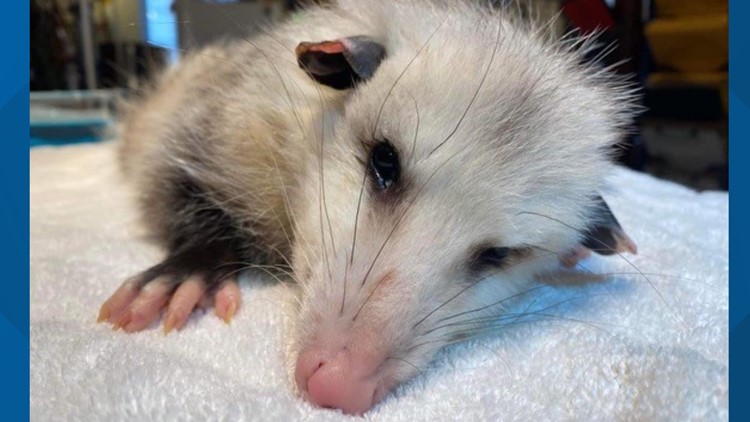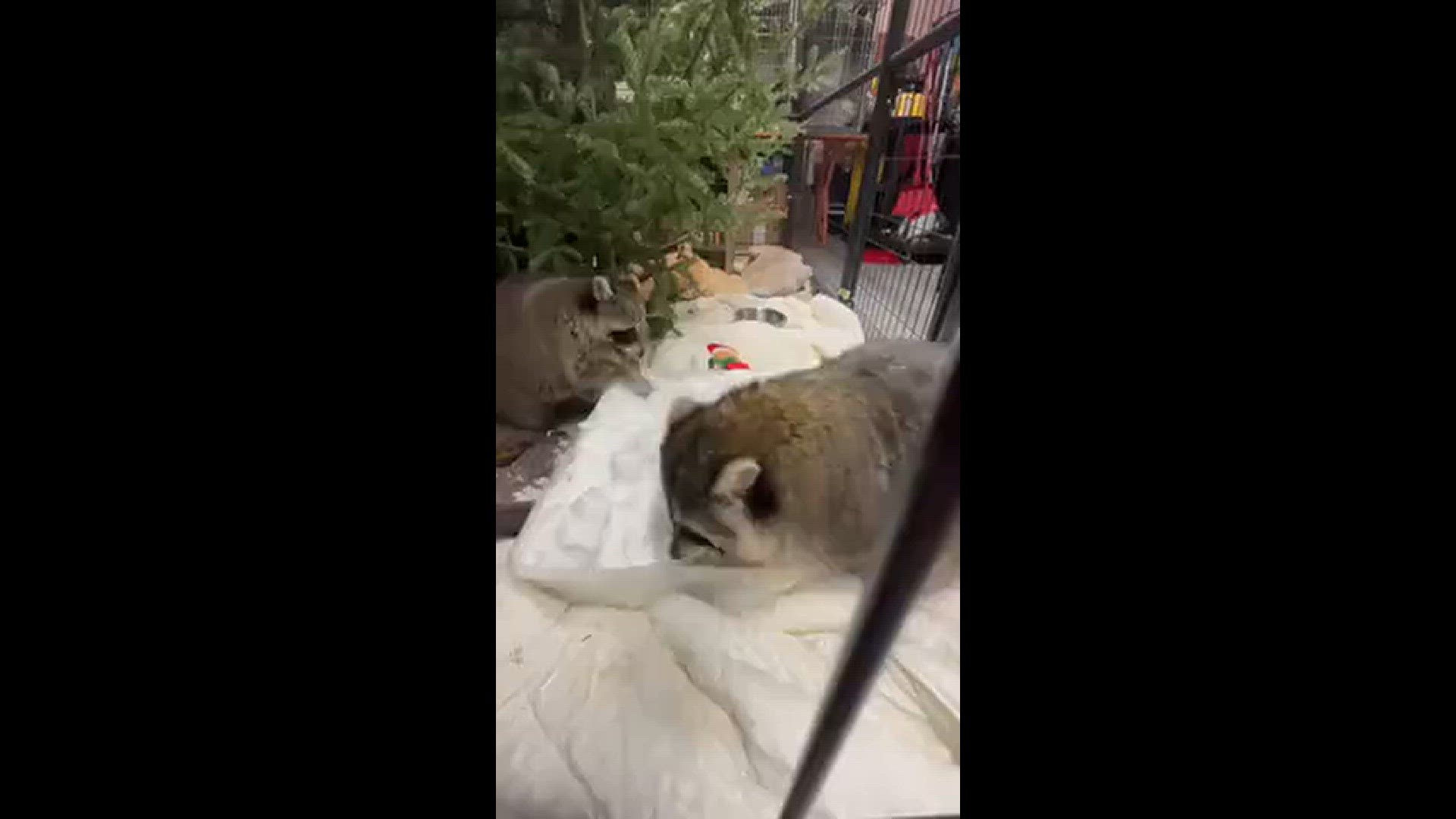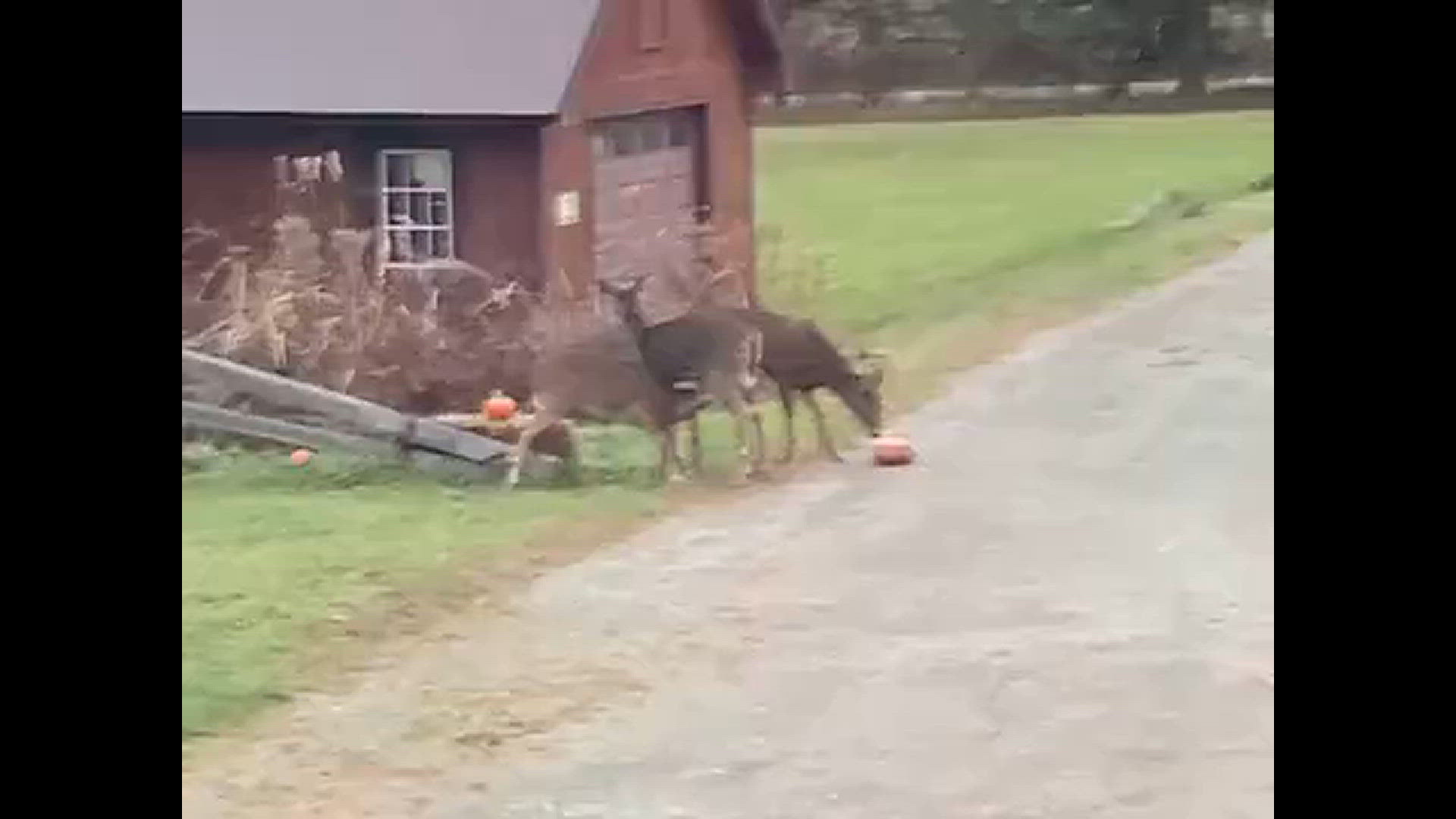BOWDOIN, Maine — Consecutive storms and a drop in temps have left many Mainers annoyed and, in some cases, devastated, but at least humans can buy food at the grocery store and cozy up by a fireplace, right?
It's a different story for Maine’s wildlife, who have no choice but to forage for food in the snow, often leading to frostbite, hypothermia, fatigue, and sometimes, being frozen in place.
At Wildlife Miracles Rehab in Bowdoin, Kathi Mccue said they treat a variety of critters each winter.
Mccue said she recently treated a bat suffering from fatigue. She said most likely the little guy was out searching for food all day but grew tired and couldn't make the journey home.
Another patient she had was an opossum with frostbite, which Mccue said is a common site this time of year. Although they have been migrating north for the past twenty years, Mccue said opossums aren't equipped to deal with Maine's harsh winters, noting their tails, ears, and feet are most susceptible to frostbite.

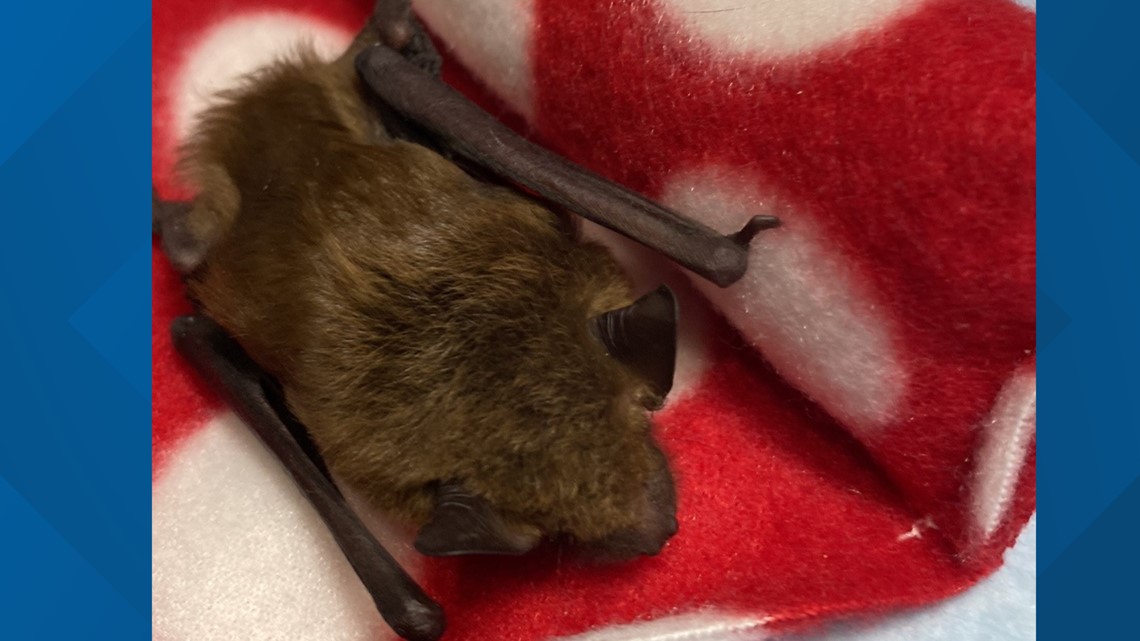
In December, Mccue received a bizarre phone call about a bobcat in Leeds that was frozen to the railroad tracks.
“One of my best friends, and fellow ADC Agents, Rich Burton, called to ask if I would take a bobcat that he was going to remove from railroad tracks,” she said. "The poor bobcat apparently went for a swim, caught a muskrat, and laid on the tracks to rest and possibly have a meal… when he froze to the tracks.”

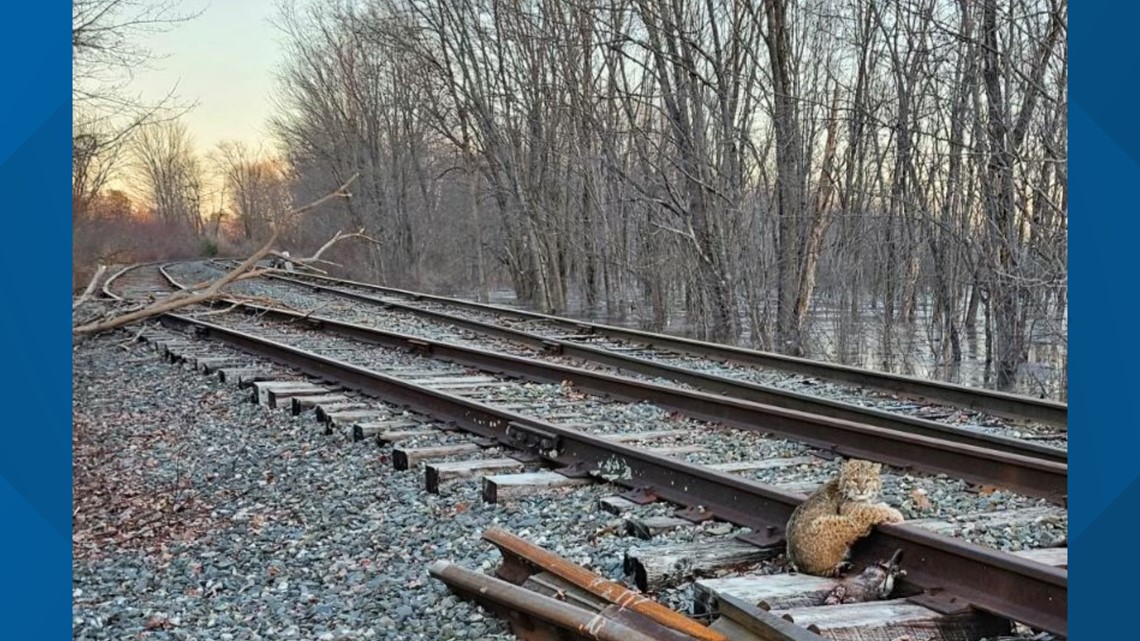
She said Burton arrived at the scene and was able to free the bobcat, then determined the critter was unharmed, and didn't need rehabilitation. Once the cat was free, he grabbed his meal and ran away without injury, she said.
While Mccue is thankful for those who rescue any wildlife, she said there are certain steps to follow to protect yourself and the animal in question.
If you encounter an animal that could be hypothermic or frozen to the ground
- Always contact a rehab specialist before approaching an animal. If someone is unable to come to you, they will often give you instructions for the next steps.
- Do not pull them off the surface they are frozen to.
- While wearing bite protection gloves, pour lukewarm water over the frozen area until they are freed.
- Make sure to have dry bedding and a crate or box to secure the animal in.
- Bring to a warm and dry area and call a wildlife rehab.
- Do not attempt to feed, water, bathe, snuggle, or "show off" the animal because it is already stressed out and scared.
Bethany Brown, director of Saco River Wildlife Center said the cold temps are an issue, but her main concern this year is the rain — which can displace animals that hibernate during the winter.
“The rain is very likely to wash away or flood dens — we have some animals that hibernate, like skunks, woodchucks, and chipmunks," Brown said. "That is my biggest fear this year. If you’re sound asleep — you’re not going to know what’s going on above."
Recently Brown took in a skunk that froze to the bottom of someone's trashcan. She took the can home and set it beside the fireplace, slowly warming the animal. Once the skunk was free, he was placed inside a carrier and examined by the center's vet and was fit as a fiddle, Brown said.
She said the most common animals they see with frostbite are opossums, raccoons, and skunks. Depending on the severity of the frostbite, Brown said they will slowly warm each critter using heating pads and incubators, and any wounds will be treated with a form of Medi honey and bandages if needed.

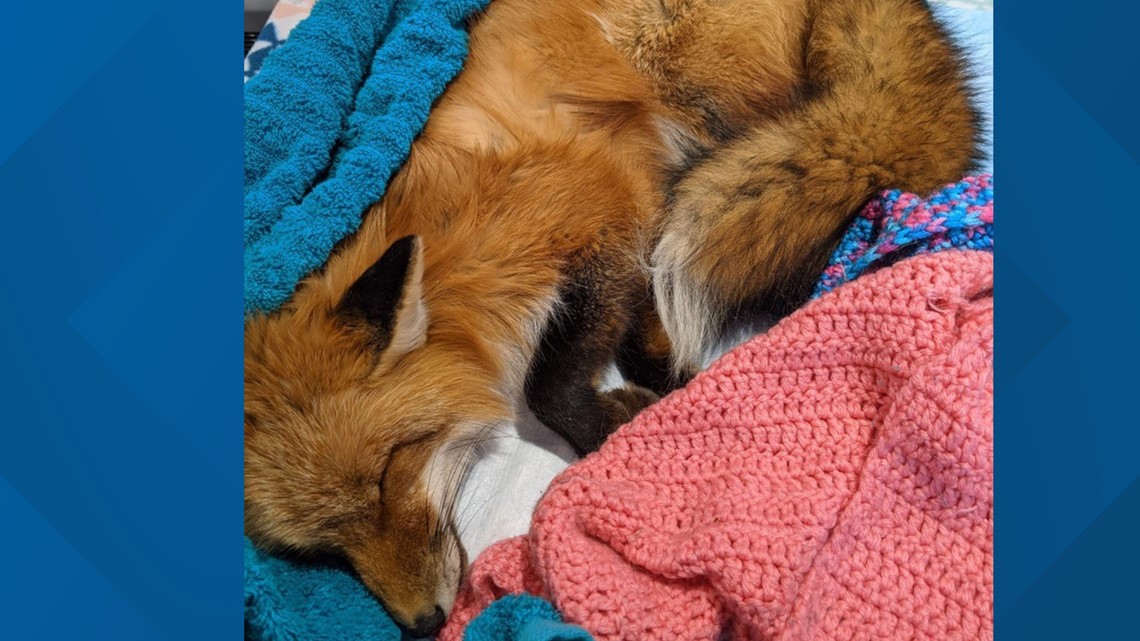
"As a licensed wildlife rehab specialist and an Animal Damage Control Agent, I receive a lot of calls for injured orphaned and displaced animals year-round…but winter time is always hard on our wildlife,” Mccue said.


